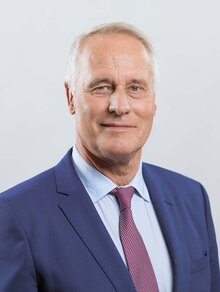After four semesters under pandemic conditions, universities throughout the country returned to in-person teaching again in the summer semester 2022. Students were able to study under «normal» conditions again, some for the first time ever.This also means building intercultural skills and competences, something few students had the opportunity to do during the uninterrupted period of isolated online learning.
Erasmus+’s Promise of Inclusion
Experience abroad is important
An equally important part of studying today, however, is spending time abroad, practicing language skills, immersing ourselves in different cultural environments, study programmes and courses and generally living in other countries. In my opinion, the concept of «internationalisation at home» is a poor substitute for the much needed sensual experience. Students need to make up for this deficit as quickly as possible, especially given the fact that the pandemic probably also prevented many school-leavers from realising plans to go abroad, so that we can effectively speak of a «deficit in international experiences».

Achim Meyer auf der Heyde was Secretary General of the German National Association for Student Affairs from October 2003 to the end of September 2021.
Erasmus+ is called for
Specifically for Erasmus+, this means helping to make visits abroad possible for students who tended not to benefit from such opportunities in the past. International mobilities are largely dependent on participants’ social origins, as the Social Studies of the German National Association for Student Affairs have documented for many years. Mainly financial and social barriers prevent students from lower-income families or those with poor access to education from taking such a step. And students with disabilities are often denied the funding needed for assistive support.
An initial assessment
Let’s take a closer look at the Erasmus+ measures that are designed to promote inclusion and diversity.Increasing grant levels is one important step. It is questionable, however, whether this increase will be sufficient given the high rate of inflation. The same applies to the fundamentally attractive lump-sum additional payment for target groups who have had less access to mobilities in the past. The new (shortened) formats may trigger interest and enable potential participants to get an initial taste of mobilities.
Individual travel allowances may also be helpful for certain students, however proving disability or chronic illness should occur in an unbureaucratic way, otherwise the negative experiences many students with disabilities had when applying for accommodations may be repeated. Halfway through the funding period, reviews should be carried out to find out whether the promise of inclusion is being upheld or whether adjustments need to be made.
See also guest commentary by Katja Urbatsch (arbeiterkind.de)